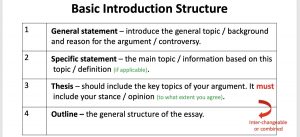Nursing, a profession deeply rooted in compassion, knowledge, and critical thinking, demands a nuanced understanding of its multifaceted aspects. This is reflected in the academic realm, where nursing students are often tasked with crafting essays that demonstrate their comprehension of the discipline. While the art of writing is a universal skill, nursing essay writing requires a unique approach, blending academic rigor with empathy and a profound understanding of the human experience.
This comprehensive guide aims to equip aspiring and current nursing students with the tools and strategies to produce impactful nursing essays that resonate with their readers. We will delve into the intricacies of crafting a compelling narrative, structuring your arguments, and incorporating evidence effectively. Let's embark on this journey to master the art of nursing essay writing.
Step-By-Step Guidelines for Nursing Essay Writing
- Understanding the Assignment and Your Audience:
The foundation of any successful
nursing essay lies in a clear understanding of the assignment's requirements and the intended audience. Before you begin writing, take the time to carefully analyze the prompt:
- Identify the key concepts: What specific themes or issues are you expected to address?
- Define the essay's purpose: Is it persuasive, analytical, descriptive, or a combination of these?
- Clarify the desired tone and style: Should your essay be formal or informal, objective or subjective?
Knowing your audience is equally crucial. In most cases, your audience will be your professor or other academic figures. Consider their expertise and expectations. For example, an essay for a clinical nursing course will likely demand a different style and level of detail than one for a humanities class.
- Crafting a Compelling Thesis Statement:
A strong thesis statement is the cornerstone of any nursing essay. It serves as a roadmap for your argument, guiding your reader through your analysis and conclusions. Here's how to craft an effective thesis statement:
- Be specific and focused: Avoid vague or overly broad claims. Your thesis should clearly state the main argument you will be defending.
- Take a stand: Your thesis statement should express a clear opinion or interpretation.
- Be debatable: A good thesis statement is not a simple statement of fact. It should present a point that can be argued and supported with evidence.
- Keep it concise: Aim for a single sentence that encapsulates your main argument.
For instance, if your essay explores the impact of technology on patient care, your thesis statement might be: "The increasing use of telemedicine in nursing practice has both positive and negative consequences for patient care, demanding a balanced approach to its implementation."
- Conducting Thorough Research:
Nursing essay writing demands meticulous research to provide credible and relevant evidence for your arguments. Utilize a variety of credible sources, including:
- Scholarly journals: Peer-reviewed journals and platforms such as Nursing Papers are the gold standard for academic research, providing rigorous analysis and data.
- Textbooks: Established textbooks offer comprehensive overviews of various nursing topics.
- Reputable websites: Websites of professional organizations like the American Nurses Association (ANA) or the World Health Organization (WHO) provide reliable information.
- Primary sources: Interviews, patient records, and case studies can provide valuable insights into real-world experiences.
Remember to critically evaluate each source for its reliability and relevance to your topic.
- Structuring Your Essay Logically:
A well-structured nursing essay helps your reader follow your argument effortlessly. Consider employing the following structure:

- Introduction: Grab the reader's attention with a hook, introduce your topic, and clearly state your thesis statement.
- Body Paragraphs: Each body paragraph should focus on a single supporting argument, using evidence from your research to support your claims.
- Topic Sentence: Begin each paragraph with a clear topic sentence that relates back to your thesis.
- Supporting Evidence: Provide concrete evidence from your research, including statistics, quotes, examples, and case studies.
- Analysis: Explain how each piece of evidence supports your argument.
- Transition: End each paragraph with a transitional sentence that connects to the next paragraph.
- Conclusion: Summarize your main points, restate your thesis, and offer a final thought or implication of your findings.
- Incorporating Evidence Effectively:
Evidence is the lifeblood of any nursing essay. To strengthen your argument, integrate evidence seamlessly into your writing:
- Direct Quotes: Use direct quotes sparingly, only when they offer a particularly insightful or powerful statement. Make sure to introduce the quote with context and explain its significance.
- Paraphrasing: Summarize information from your sources in your own words, ensuring you accurately reflect the original source.
- Statistics: Use statistics to provide quantifiable support for your claims. Be sure to cite the source of the statistics.
- Examples: Illustrate your points with concrete examples, drawing on real-world situations, case studies, or patient experiences.
- Demonstrating Critical Thinking:
Nursing essay writing goes beyond simply presenting facts; it requires critical analysis and interpretation of the information you gather. Show that you can:
- Analyze: Break down complex concepts into their component parts.
- Synthesize: Combine different pieces of information to form a new understanding.
- Evaluate: Assess the strengths and weaknesses of different arguments.
- Apply: Use your knowledge to address a specific problem or situation.

- Maintaining a Professional Tone and Style:
Nursing essays should reflect the professionalism and ethical standards of the nursing profession. Pay attention to:
- Formal Language: Avoid slang, jargon, and overly casual language.
- Objective Language: Use objective language, focusing on facts and evidence rather than personal opinions.
- Clear and Concise Writing: Use precise language and avoid unnecessary verbiage.
- Proper Grammar and Punctuation: Ensure your essay is free of grammatical errors and that you use correct punctuation.
- Incorporating Ethical Considerations:
Nursing practice is inherently intertwined with ethical considerations. When writing nursing essays, address ethical dilemmas and challenges, demonstrating your understanding of:
- Patient Autonomy: Respecting the patient's right to make their own decisions about their care.
- Beneficence: Acting in the best interests of the patient.
- Non-maleficence: Avoiding harm to the patient.
- Justice: Ensuring fair and equitable treatment for all patients.
- Using a Strong Introduction and Conclusion:
Your introduction and conclusion are the bookends of your nursing essay. They set the stage for your argument and leave a lasting impression on your reader.
- Introduction: Start with a strong hook that grabs the reader's attention, introduce the topic, and state your thesis clearly.

- Conclusion: Summarize your main points, restate your thesis, and offer a final thought or implication of your findings.
- Revising and Editing:
No matter how well you think you've written, taking the time to revise and edit your nursing essay is crucial. After completing a draft, allow some time to pass before reviewing your work with fresh eyes. Focus on:
- Clarity: Is your writing clear and easy to understand?
- Cohesion: Do your ideas flow logically and smoothly?
- Evidence: Is your evidence relevant, credible, and well-integrated?
- Grammar and Punctuation: Are there any errors in grammar, spelling, or punctuation?
- Tips for Success:
- Start early: Don't wait until the last minute to start working on your nursing essay. Give yourself ample time to research, write, and revise.
- Break down the task: Divide your essay into smaller, manageable sections to make the writing process less daunting.
- Take breaks: It's important to step away from your writing for a while to clear your head and come back with fresh perspective.
- Seek feedback: Ask a classmate, friend, or tutor to review your work and provide feedback.
- Don't be afraid to ask for help: If you're struggling with any aspect of nursing essay writing, don't hesitate to ask your professor or a writing center for assistance.
- Examples of Effective Nursing Essay Topics:
- The ethical implications of assisted suicide in end-of-life care.
- The impact of cultural diversity on patient care.
- The role of technology in improving patient outcomes.
- The challenges of maintaining patient confidentiality in the digital age.
- The future of nursing in the 21st century.
- Writing Resources for Nursing Students:
- The American Nurses Association (ANA): Offers resources on ethical guidelines, professional development, and current nursing issues.
- The World Health Organization (WHO): Provides comprehensive information on global health issues, including nursing practices.
- The National League for Nursing (NLN): Offers resources for nursing education and research, including writing guidelines for nursing essays

The Common Mistakes to Avoid in Nursing Essay Writing
- Plagiarism: Ensure all borrowed material is properly cited using a consistent citation style.
- Lack of Focus: Stick to your thesis and avoid going off on tangents.
- Insufficient Evidence: Provide adequate support for your claims using credible sources.
- Weak Arguments: Ensure your arguments are logical and well-supported.
- Poor Organization: Structure your essay clearly, with a logical flow of ideas.
- Grammatical Errors: Proofread carefully for any errors in grammar, spelling, and punctuation.
The Power of a Strong Nursing Essay
Writing a compelling nursing essay is a rewarding endeavor that can significantly enhance your academic performance and shape your understanding of the nursing profession. By mastering the principles outlined in this guide, you can craft impactful nursing essays that demonstrate your knowledge, critical thinking skills, and commitment to patient care. Remember, nursing essay writing is not just about fulfilling an assignment; it is a platform to express your passion for the profession and contribute to the broader discourse on nursing practice and its impact on human health.
In conclusion, crafting an impactful nursing essay requires a blend of research, critical thinking, and effective writing skills. This comprehensive guide provides the tools and strategies to navigate the challenges of nursing essay writing, enabling you to produce high-quality work that reflects your commitment to the profession. Remember, the ultimate goal is to create an essay that not only fulfills the assignment requirements but also leaves a lasting impression on your readers.
Get Professional Nursing Essay Writing Assistance
Are you stuck with a nursing essay? Then, engage
Academia Scholars for professional nursing essay writing assistance. We can help you with topic suggestion, essay writing, proof reading, editing and, plagiarism check and removal. Our writers can also assist you with crafting
nursing research papers, case studies and
dissertations.



